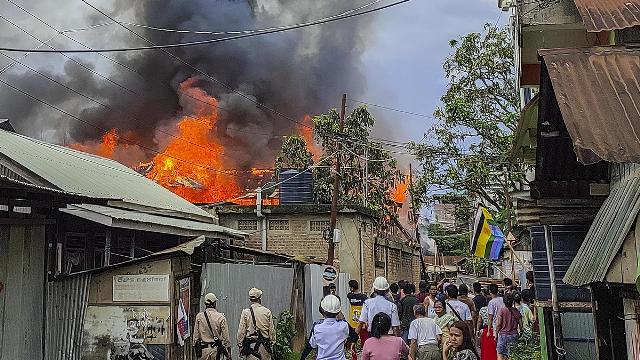
GUWAHATI (TIP): A conglomerate of 15 Manipur organizations has submitted a memorandum to the United Nations and international rights bodies seeking global attention to the ongoing crisis in the northeastern State.
The organizations include the influential All Manipur United Clubs’ Organisation, Manipur Students’ Federation, All Manipur Women’s Voluntary Association, and Pangal (Muslim) Students’ Organisation. The memorandum was submitted on June 13 to the Secretary-General of the United Nations, the UN High Commissioner for Human Rights, the UN Office on Drugs and Crime, the International Committee of the Red Cross, and other agencies apart from the Amnesty International.
“Unabated violation”
Flagging the issues of hunger, poverty, and militarization of Manipur, the organizations flagged the “partisan role” of India’s Central Security Forces and “unabated violation” of the ground rules of the tripartite Suspension of Operations (SoO) by the Kuki extremists.
Of some 30 outfits belonging to the Kuki-Zomi group of tribes, 25 are bound by the SoO, requiring them to stay in designated camps and not move around with firearms. The Manipur government and Imphal Valley-based organizations have been accusing the Kuki-Zomi extremists of killing Meitei people.
The 15 organizations underlined the “breach of inter-community ties and peace” in Manipur and elsewhere in the northeast due to the involvement of “foreign (Myanmar-based) Chin-Kuki-Mizo mercenaries in inciting inter-ethnic violence” in the State.
“An unbiased international attention and intervention is the need of the hour in accordance with the established international humanitarian laws,” they wrote.
They also sought to draw the attention of the UN to the human rights violation and the blockade of highways, Manipur’s lifelines, by Kuki extremists along with members of the Committee on Tribal Unity, the Kuki Students’ Organisation, and the Indigenous Tribal Leaders’ Forum. The action of these groups has led to price rise, hunger, and poverty in Manipur, they said.
The organizations blamed the “mobilization for the Greater Chin-Kuki homeland, also known as the Zalengam project” for affecting the inter-ethnic relations in the region and asserted that the ethnic Zo politics had worked in collusion with “narco-financed capital terror network” to tear the social fabric in Manipur.
Insidious cross-border economic activities such as human-trafficking, poppy cultivation, deforestation, illegal immigration, and space politics have added to the complications in Manipur, they argued. Consequently, the region has transformed itself from a consumer to an opium producer, which is a cause of alarm for every ethnic community, they claimed.
(Source: The Hindu)





Be the first to comment